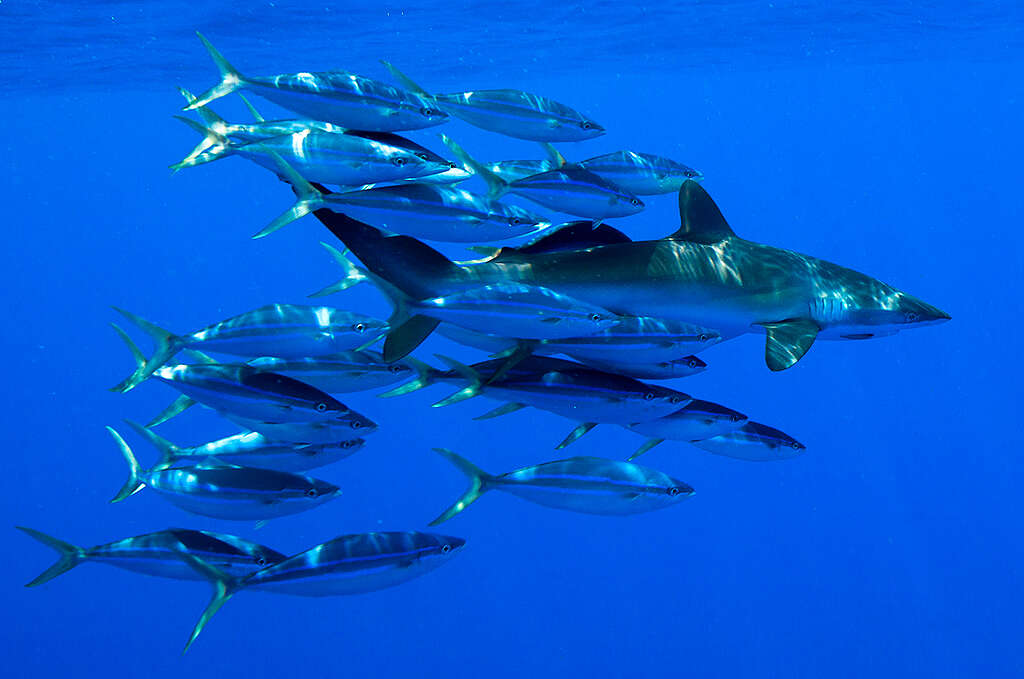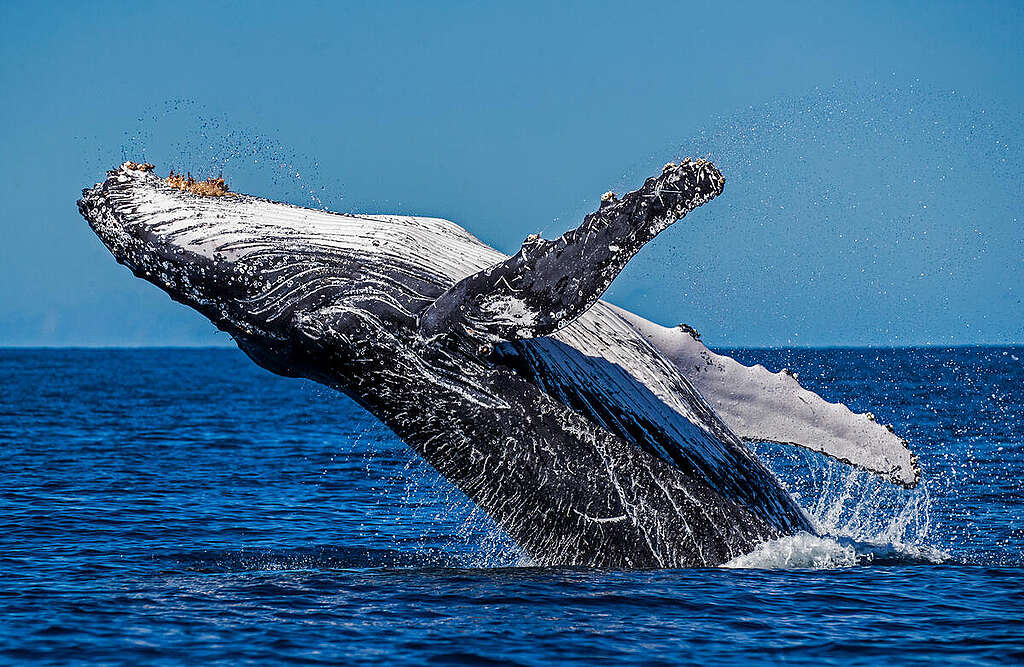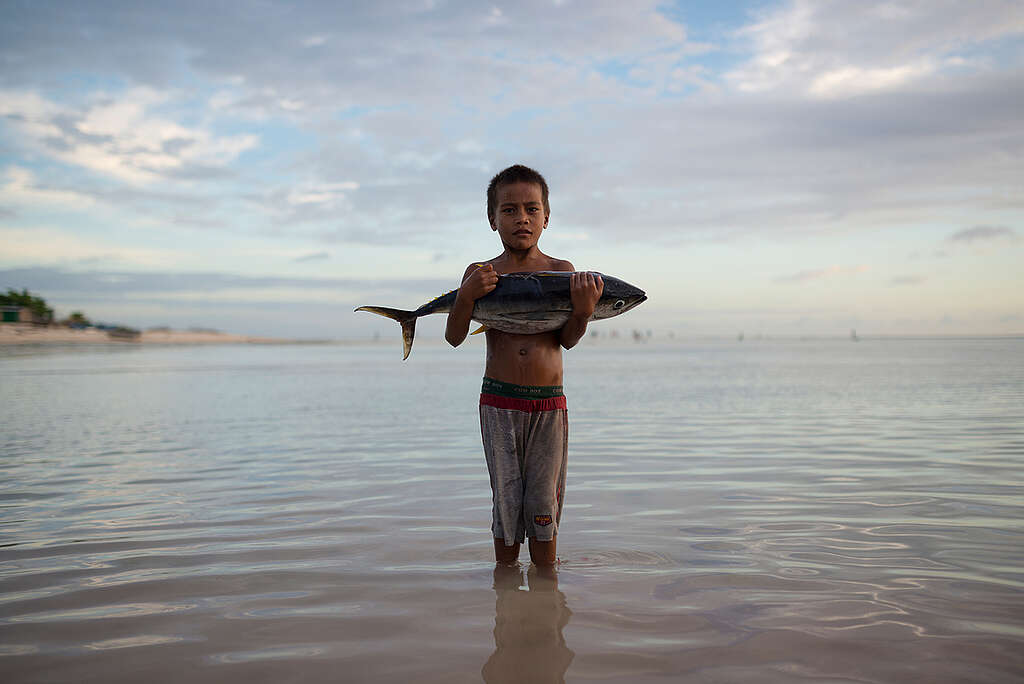Stand with us to protect the health of our oceans and marine life. The health of our oceans are vital to life on earth.
Every second breath we take comes from the ocean. Healthy oceans are the life support system for our planet, providing 97 percent of the Earth’s liveable habitat and a home to more than 700,000 different species of marine life.

Marine ecosystems are being degraded – and we need to urgently protect them.
Ocean scientists believe there could be anywhere between 500,000 and 5 million species in the ocean that we haven’t even discovered. The oceans are vital to human health as well, providing food, enjoyment and livelihood to billions of people. In our region, Pacific Island states are deeply connected and inextricably reliant on ocean health for income and food security, while Australia’s ocean territory is one of the largest and most biodiverse of any country in the world.
Imagine a world where sustainable, small-scale, and subsistence fishers are given greater rights and access to the ocean to feed communities that rely on it, than the industrial-scale fishing industries that dominate the global consumer seafood market. A world where a third of the world’s oceans are protected from industrial activity to build resilience against a changing climate, and ensure species rebound and flourish into the future.
To support people, fight climate breakdown and save wildlife we need to protect the oceans with a strong Global Ocean Treaty that allows at least 30% of the oceans to be fully protected by 2030. This August the UN has the opportunity to protect the oceans. Will you sign our petition asking Australia, Pacific nations, and other world governments to push for a strong Global Ocean Treaty?
There has never been a more important time to step up our efforts to protect our oceans.
A growing human population and expanding culture of consumerism, is putting ever-increasing pressure on marine ecosystems. To meet this demand, the seafood industry is engaged in a destructive race to fish, where sustainability, and fairness is put aside in favour of maximum profits. The depletion of fish populations and habitat destruction is having a devastating impact on our ocean ecosystems and the hundreds of millions of people who rely on fish for food and livelihoods. Largely unexploited until very recently, the high seas and deep seas have become the extremes at which the increasing race for resources and commodification of nature is playing out.
Meanwhile, empty oceans are at risk of becoming dead oceans. Warming seas and ocean acidification due to climate change are compounded by pollution from industrial run-off and billions of tonnes of discarded plastics. If oceans die they stop providing us with all of the functions they currently support that are critical to life on earth – oxygen production, the storing and cycling of vast amounts of carbon that are critical in regulating our climate, food for millions and other myriad but essential, life-giving processes.
We are bearing witness to the mass extinction of sea life throughout our oceans. Overfishing, greenhouse gas emissions and mass single use plastic production are only some of the causes which all they all have one thing in common – us. The scientific community have said that the rate of extinctions is the worst recorded since the extinction of the dinosaurs, but it’s not too late to turn this around and find solutions that would allow sealife to thrive again. Together, we can find ways to keep relying on oceans while depending on them and respecting them and the sea life that lives in them.
Join the fight to protect marine life
Protecting our oceans has always been one of Greenpeace’s core goals. Having healthy oceans is a core priority as they are intertwined with the prospering of people worldwide, in terms of food, health, tourism as well as leisure.
This is why we campaign to stop plastics ending up in our oceans. As plastics are produced daily in such enormous quantities, we simply can’t rely on recycling alone. Corporations guilty of such waste are listening. And they will change their methods when people show they have had enough of their plastic waste. That’s why we are demanding these big corporations to reduce now their plastic footprint. More specifically, to stop producing excessive plastic packaging that will last thousands of years, designed to be used only once, then thrown away. Single-use plastics cannot be an option if we want to keep our oceans alive and healthy.
To protect our oceans, we are also pushing to create a global network of ocean sanctuaries. Currently, less than 2 percent of all the oceans across the world are currently protected by law. If we want to give marine life a fighting chance, we need to drastically expand their protected areas. We are fighting to create ocean sanctuaries in a 30 percent of the world’s oceans by 2030.
These areas would be protected from human exploitation, meaning any kind of extraction or degradation (fishing, mining, waste disposal) would be forbidden, allowing species to recover.

But even if we manage to protect these large stretches of ocean, we can’t let the unprotected areas get left behind. In addition to the sanctuaries, we need to implement global sustainable fishing practices. The current intensive fishing activities are disrupting marine ecosystems around the world and negatively impact fishing communities. At such scale, bycatch kills around 63 billion pounds of sea creatures every year. Forced labor and human trafficking are also dire problems in the fishing industry, especially on fishing fleets. That’s why we’re campaigning against any type of abusive fishing activities including destructive and illegal fishing.

If you would like to learn more about our campaigns to protect the oceans, make sure to read the resources listed below.


